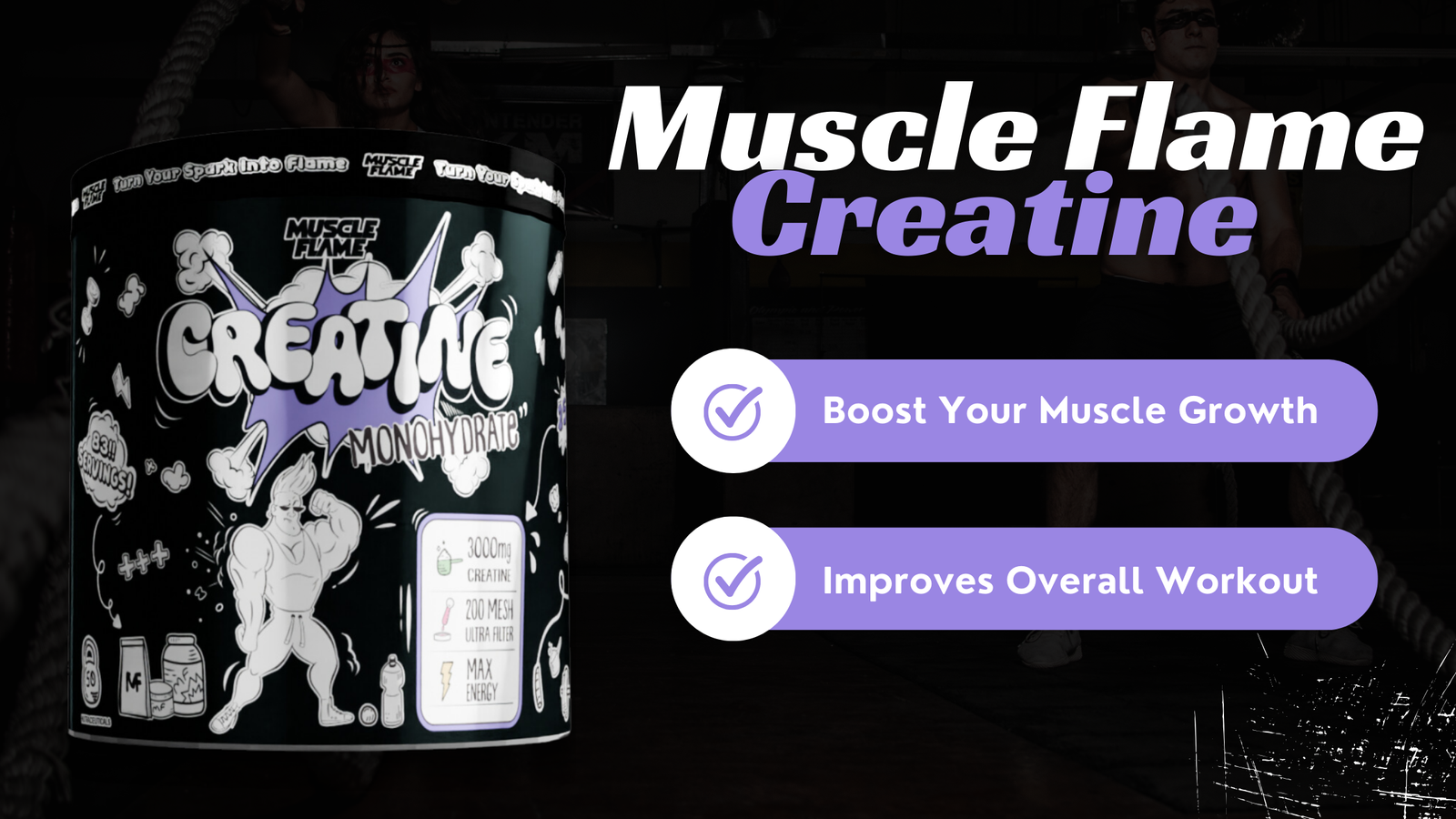
Benefits of Creatine for Strength and Endurance Training
Creatine is a naturally occurring compound found primarily in muscle cells, playing a crucial role in energy production during intense physical activity. For decades, athletes and bodybuilders have used creatine supplements to boost performance. But what exactly are the benefits of creatine for strength and endurance training? How does it work, and why should you consider adding it to your workout regimen? This blog delves into the science behind creatine and explores the wide-ranging benefits it offers for both strength and endurance athletes.
1. What is Creatine and How Does It Work?
Creatine is an organic compound that your body produces naturally. It’s stored in your muscles as phosphocreatine, which helps generate ATP (adenosine triphosphate), the primary energy source for muscle contractions. When you engage in short, intense bursts of activity—such as lifting weights or sprinting—your body relies on ATP to fuel the action. Creatine supplements increase the availability of phosphocreatine in your muscles, allowing you to regenerate ATP more quickly. This, in turn, improves your ability to sustain high-intensity workouts.
2. The Benefits of Creatine for Strength Training
- Increased Muscle Mass: One of the most well-known benefits of creatine is its ability to help increase muscle mass. Creatine allows your muscles to work harder for longer periods, which can lead to significant gains in strength and size. When muscles are loaded with creatine, they can lift heavier weights, resulting in hypertrophy (muscle growth) over time.
- Improved Maximal Strength: Creatine enhances the production of ATP, enabling your muscles to perform at their peak for longer periods. Studies show that creatine can lead to improvements in one-rep max lifts, making it an ideal supplement for powerlifters and strength athletes.
- Enhanced Recovery Between Sets: One of the unique features of creatine is its ability to help with recovery between sets. Faster ATP regeneration means you can take shorter breaks between sets without sacrificing performance, leading to more effective workouts in a shorter period.
- Boost in Power Output: Power athletes, such as sprinters and Olympic lifters, benefit significantly from creatine supplementation. Creatine helps improve explosive power, which is crucial for sports that require short bursts of energy.
3. The Benefits of Creatine for Endurance Training
- Increased Time to Fatigue: While creatine is more commonly associated with strength training, endurance athletes can also benefit from it. By enhancing ATP regeneration, creatine allows athletes to sustain high-intensity efforts for longer before experiencing muscle fatigue. For example, runners or cyclists may find that they can maintain their pace for extended periods.
- Enhanced Performance in High-Intensity Intervals: Endurance athletes often incorporate interval training into their routines. Creatine can be particularly beneficial during these high-intensity bursts, improving performance in activities like sprints or uphill climbs that demand a sudden surge of energy.
- Improved Muscle Recovery: Creatine helps to buffer the accumulation of lactic acid during prolonged endurance activities, which can delay muscle soreness and improve recovery times between training sessions. This benefit is especially useful for athletes engaging in back-to-back endurance training or competition events.
- Boost in Energy Levels for Long-Distance Events: Endurance athletes competing in long-distance events such as marathons or triathlons may notice that creatine supplementation helps them sustain higher energy levels, particularly during the later stages of their race when muscle energy stores become depleted.
4. Who Should Use Creatine?
Creatine supplementation is suitable for various types of athletes:
- Bodybuilders and Powerlifters: To build muscle mass and improve strength.
- Sprinters and Track Athletes: To boost short-burst energy and explosive power.
- Cyclists and Long-Distance Runners: To improve time to fatigue and recovery.
- CrossFit Enthusiasts and HIIT Participants: To enhance performance in high-intensity interval training sessions.
5. How to Take Creatine for Optimal Results
- Creatine Loading: For faster results, athletes can follow a loading phase, typically taking 20 grams of creatine per day for 5–7 days, followed by a maintenance phase of 3–5 grams per day.
- Consistency is Key: Creatine works best when taken consistently over an extended period. Skipping doses or using it only sporadically may reduce its effectiveness.
- Hydration is Crucial: Creatine draws water into muscle cells, so it’s important to stay well-hydrated to avoid cramping or dehydration.
Summary:
Creatine is one of the most researched supplements available and is widely known for its benefits in both strength and endurance training. From building muscle mass and increasing strength to improving performance in high-intensity intervals, creatine is a powerful tool for athletes of all types. Its ability to enhance ATP production allows you to push harder and recover faster, making it an invaluable part of any fitness regimen.
FAQs:
1. Is Creatine Safe? Yes, creatine is considered safe for most people when taken at recommended dosages. Numerous studies have shown it to be free of adverse side effects when used properly.
2. How Long Does It Take for Creatine to Work? You can start to notice improvements in strength and endurance within 1–2 weeks, especially if you follow a creatine loading phase. However, for long-term results, consistent use over several months is key.
3. Should Women Take Creatine? Absolutely! Women can benefit from creatine in the same ways men do, especially for increasing strength, muscle mass, and endurance.
4. Can Creatine Cause Weight Gain? Creatine may cause an initial increase in water retention, leading to slight weight gain. However, this weight is typically muscle mass, not fat.
5. Is It Necessary to Cycle Creatine? There is no need to cycle creatine. Continuous use has been shown to be safe and effective over the long term.
Conclusion:
Creatine is a versatile and scientifically backed supplement that offers a range of benefits for both strength and endurance athletes. Its ability to improve performance, increase muscle mass, and enhance recovery makes it a must-have in any fitness enthusiast’s supplement stack. Whether you’re lifting weights, sprinting, or running marathons, creatine can help you take your performance to the next level. As with any supplement, it’s important to use creatine responsibly, maintain proper hydration, and incorporate it into a well-rounded training and nutrition plan for the best results.



